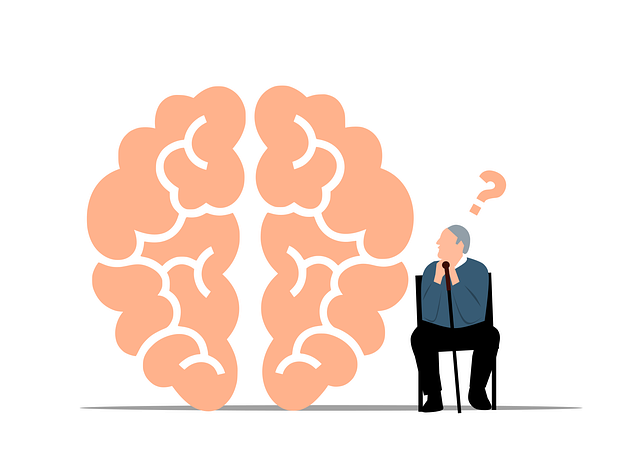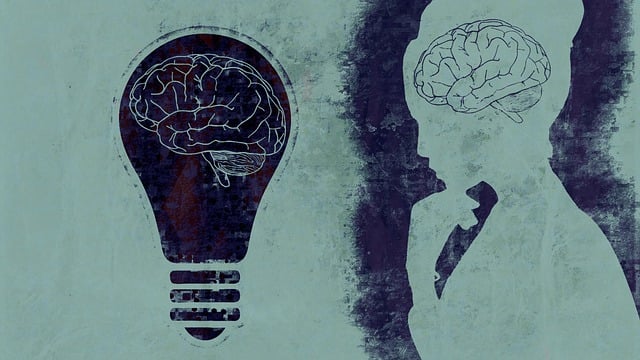Denver Learning Disability Therapy emphasizes holistic risk management, combining compassion cultivation, emotional intelligence, and inner strength training for therapists. By proactively addressing challenges like complex cases and stigma, they create a secure environment enhancing client well-being. This involves self-awareness exercises, cultural competency training, open communication, and crisis intervention guidance. Regular assessments and adaptations ensure the sustainability of their mental health services, fostering resilience among both practitioners and clients.
Mental health professionals in Denver, particularly those specializing in learning disability therapy, face unique challenges. Effective risk management planning isn’t just beneficial; it’s essential for safeguarding clients and practitioners alike. This article explores crucial aspects of managing risks specific to this field, from understanding the nuances of risk in mental health practice to developing robust strategies for mitigation. By delving into these topics, we aim to enhance safety and continuity in Denver learning disability therapy sessions.
- Understanding Risk in Mental Health Practice
- Assessing Risks Specific to Learning Disability Therapy in Denver
- Developing a Comprehensive Risk Management Plan
- Implementing Strategies for Mitigating Risks
- Regular Review and Adaptation: Ensuring Continuous Safety in Therapy Sessions
Understanding Risk in Mental Health Practice

In the realm of mental health professional services, such as those offered by Denver Learning Disability Therapy, understanding risk is paramount to effective and safe practice. Risk in this context encompasses various factors that can impact both clients’ well-being and practitioners’ resilience. It involves anticipating potential challenges, such as complex client presentations, ethical dilemmas, or adverse events during therapy sessions. By recognizing these risks, mental health professionals can proactively navigate them, ensuring the best possible care for their clients.
Compassion cultivation practices and emotional intelligence are crucial tools in risk management. Enhancing practitioners’ ability to recognize and respond to clients’ emotions fosters a safe therapeutic environment. Furthermore, inner strength development enables professionals to maintain resilience when encountering difficult situations, thereby mitigating potential risks. This holistic approach not only benefits the clients but also ensures the long-term sustainability and well-being of mental health practitioners themselves.
Assessing Risks Specific to Learning Disability Therapy in Denver

In Denver, where the diverse landscape of learning disability therapy thrives, mental health professionals face unique challenges. Assessing risks specific to this field involves understanding the complex needs of clients with learning disabilities and the potential stressors within the therapeutic environment. These may include anxiety related to academic pressures, social isolation, or the stigma associated with learning differences. Building resilience among these individuals is a key focus in Denver Learning Disability Therapy.
Effective risk management planning for mental health professionals in this context requires incorporating strategies that foster positive thinking. This involves creating safe, supportive spaces where clients feel understood and empowered. By integrating evidence-based practices tailored to learning disabilities, therapists can enhance their ability to mitigate risks and promote positive outcomes. Moreover, regular staff training on resilience building techniques ensures a comprehensive approach to risk management planning for mental health professionals in Denver.
Developing a Comprehensive Risk Management Plan

In developing a comprehensive risk management plan for mental health professionals, such as those offering Denver Learning Disability Therapy, a holistic approach is essential. This involves integrating various strategies to mitigate potential risks and ensure patient safety. A robust plan should encompass self-awareness exercises to help therapists recognize their own emotional triggers and biases, fostering healthier interactions with clients. Additionally, healthcare provider cultural competency training is crucial for understanding diverse patient backgrounds, which can enhance therapeutic outcomes and minimize the risk of miscommunication or insensitive treatment.
By incorporating these proactive measures, mental health professionals can create a supportive environment that encourages open dialogue and promotes positive thinking among their clients. Such an environment not only reduces the risks associated with therapy but also enhances the overall effectiveness of the treatment process. This is particularly important in addressing learning disabilities, where cultural sensitivity and self-awareness are key to tailoring therapeutic approaches to individual needs.
Implementing Strategies for Mitigating Risks

Implementing effective risk management strategies is paramount for mental health professionals to foster a safe and supportive environment. At Denver Learning Disability Therapy, we recognize that mitigating risks goes beyond adherence to guidelines; it involves cultivating resilience among clients and ourselves. By integrating self-care practices into daily routines, therapists can enhance their own emotional well-being and better support individuals navigating challenging situations.
This proactive approach includes prioritizing open communication, ensuring clear crisis intervention guidance, and promoting client education about potential risks. Through these strategies, mental health professionals in Denver can create a space where clients feel empowered to manage their mental health effectively, ultimately contributing to improved outcomes and stronger resilience-building practices.
Regular Review and Adaptation: Ensuring Continuous Safety in Therapy Sessions

Mental health professionals must incorporate regular review and adaptation into their risk management planning to ensure continuous safety in therapy sessions. This dynamic approach acknowledges that client needs, therapeutic techniques, and even mental health landscapes can evolve over time. By setting aside dedicated moments to assess progress, reassess risks, and adjust strategies, therapists in Denver learning disability therapy can tailor interventions to meet the unique, changing demands of their clients.
Embracing emotional intelligence and self-care routine development for better mental health is integral to this process. Regular reflection allows professionals to recognize when they may be experiencing burnout or depleting their own emotional resources, which could compromise their ability to provide effective support. Through ongoing evaluation and adaptation, therapists can maintain a safe, nurturing environment that facilitates emotional healing processes, ultimately benefiting both the therapist and their clients.














